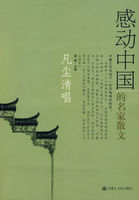Further, as the simplex must be the principle of the non-simplex, though not its genus- for then the non-simplex too would be simplex,- so it stands with unity; if unity is a Principle;it cannot be a genus to its subsequents, and therefore cannot be a genus of Being or of other things.If it is nevertheless to be a genus, everything of which it is a genus must be taken as a unit- a notion which implies the separation of unity from substance: it will not, therefore, be all-embracing.just as Being is not a genus of everything but only of species each of which is a being, so too unity will be a genus of species each of which is a unity.But that raises the question of what difference there is between one thing and another in so far as they are both units, corresponding to the difference between one being and another.
Unity, it may be suggested, is divided in its conjunction with Being and Substance; Being because it is so divided is considered a genus- the one genus manifested in many particulars; why then should not unity be similarly a genus, inasmuch as its manifestations are as many as those of Substance and it is divided into as many particulars?
In the first place, the mere fact that an entity inheres in many things is not enough to make it a genus of those things or of anything else: in a word, a common property need not be a genus.The point inherent in a line is not a genus of lines, or a genus at all; nor again, as we have observed, is the unity latent in numbers a genus either of the numbers or of anything else: genus demands that the common property of diverse objects involve also differences arising out of its own character, that it form species, and that it belong to the essence of the objects.But what differences can there be in unity? What species does it engender? If it produces the same species as we find in connection with Being, it must be identical with Being: only the name will differ, and the term Being may well suffice.
11.We are bound however to enquire under what mode unity is contained in Being.How is what is termed the "dividing" effected-especially the dividing of the genera Being and unity? Is it the same division, or is it different in the two cases?
First then: In what sense, precisely, is any given particular called and known to be a unity? Secondly: Does unity as used of Being carry the same connotation as in reference to the Absolute?
Unity is not identical in all things; it has a different significance according as it is applied to the Sensible and the Intellectual realms- Being too, of course, comports such a difference-and there is a difference in the unity affirmed among sensible things as compared with each other; the unity is not the same in the cases of chorus, camp, ship, house; there is a difference again as between such discrete things and the continuous.Nevertheless, all are representations of the one exemplar, some quite remote, others more effective: the truer likeness is in the Intellectual; Soul is a unity, and still more is Intellect a unity and Being a unity.
When we predicate Being of a particular, do we thereby predicate of it unity, and does the degree of its unity tally with that of its being? Such correspondence is accidental: unity is not proportionate to Being; less unity need not mean less Being.An army or a choir has no less Being than a house, though less unity.
It would appear, then, that the unity of a particular is related not so much to Being as to a standard of perfection: in so far as the particular attains perfection, so far it is a unity; and the degree of unity depends on this attainment.The particular aspires not simply to Being, but to Being-in-perfection: it is in this strain towards their perfection that such beings as do not possess unity strive their utmost to achieve it.
Things of nature tend by their very nature to coalesce with each other and also to unify each within itself; their movement is not away from but towards each other and inwards upon themselves.Souls, moreover, seem to desire always to pass into a unity over and above the unity of their own substance.Unity in fact confronts them on two sides: their origin and their goal alike are unity; from unity they have arisen, and towards unity they strive.Unity is thus identical with Goodness [is the universal standard of perfection]; for no being ever came into existence without possessing, from that very moment, an irresistible tendency towards unity.
From natural things we turn to the artificial.Every art in all its operation aims at whatsoever unity its capacity and its models permit, though Being most achieves unity since it is closer at the start.
That is why in speaking of other entities we assert the name only, for example man; when we say "one man," we have in mind more than one;and if we affirm unity of him in any other connection, we regard it as supplementary [to his essence]: but when we speak of Being as a whole we say it is one Being without presuming that it is anything but a unity; we thereby show its close association with Goodness.
Thus for Being, as for the others, unity turns out to be, in some sense, Principle and Term, not however in the same sense as for things of the physical order- a discrepancy leading us to infer that even in unity there are degrees of priority.
How, then, do we characterize the unity [thus diverse] in Being?
Are we to think of it as a common property seen alike in all its parts? In the first place, the point is common to lines and yet is not their genus, and this unity we are considering may also be common to numbers and not be their genus- though, we need hardly say, the unity of Unity-Absolute is not that of the numbers, one, two and the rest.Secondly, in Being there is nothing to prevent the existence of prior and posterior, simple and composite: but unity, even if it be identical in all the manifestations of Being, having no differentiae can produce no species; but producing no species it cannot be a genus.















